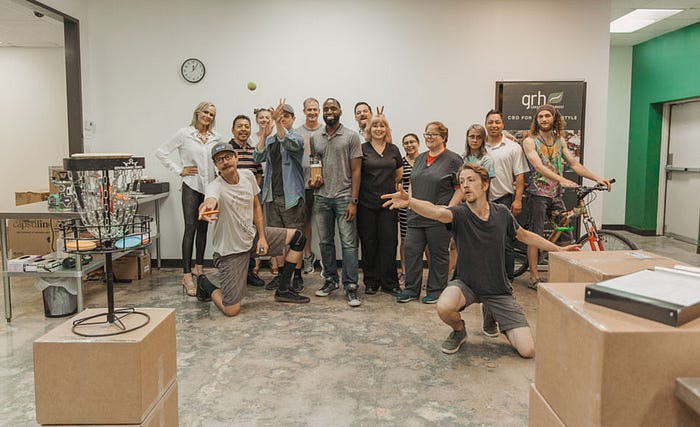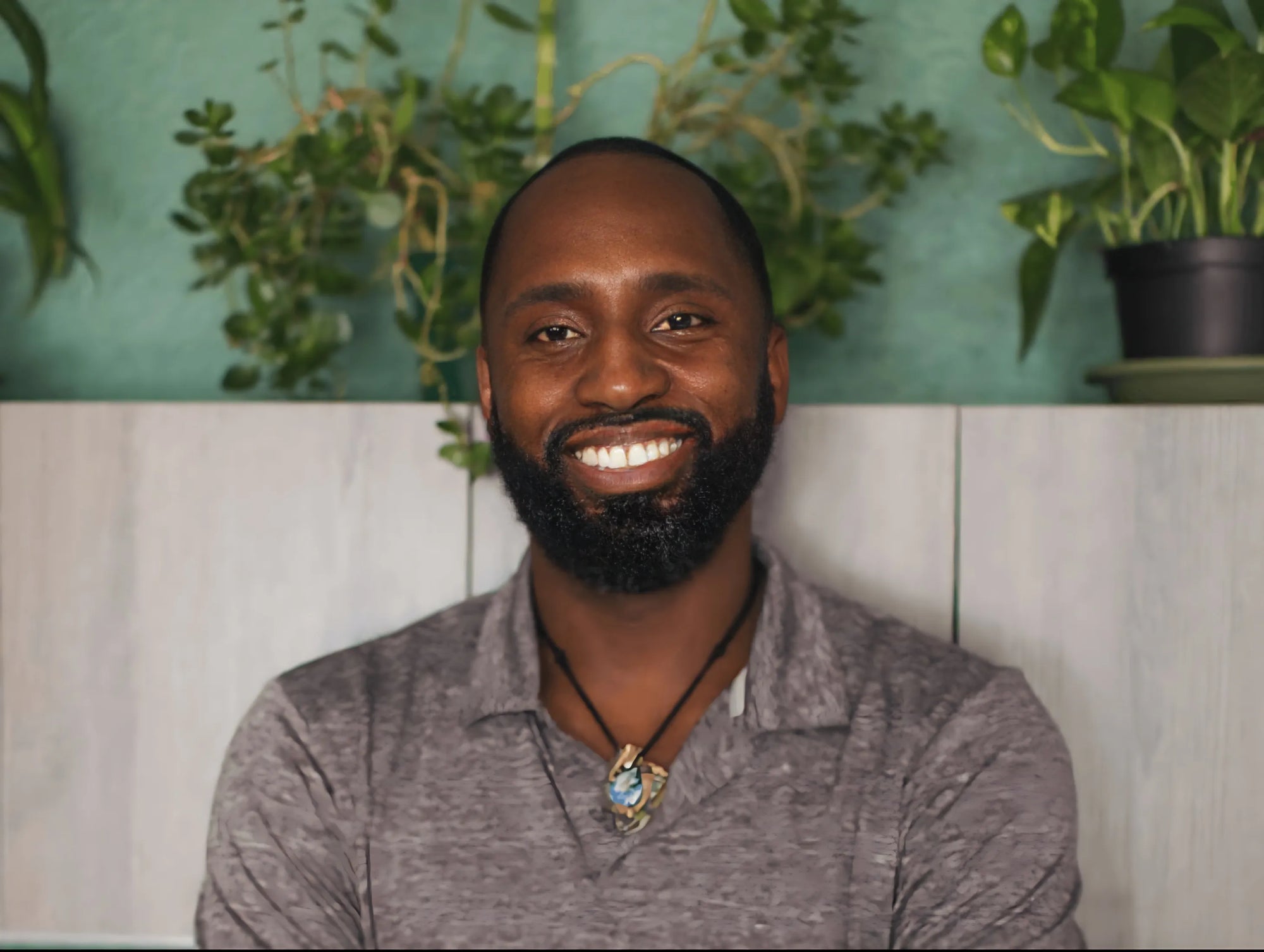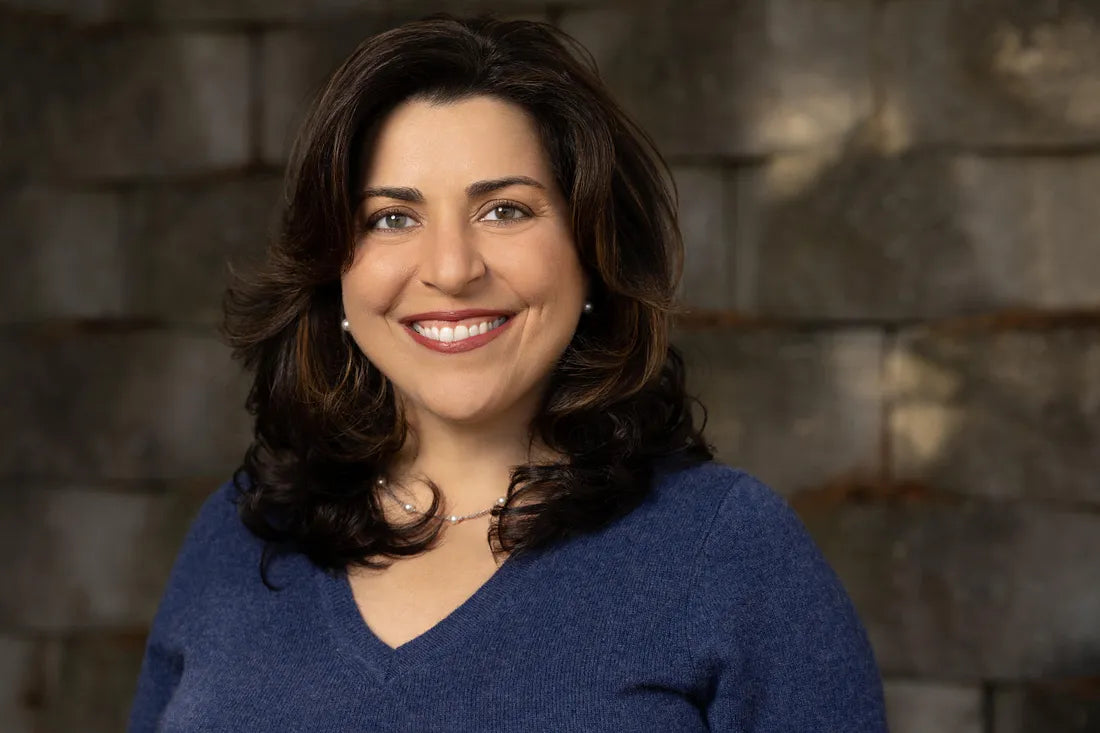Know Your Strengths, Delegate the Rest: While it’s definitely a good idea to grasp the basics, don’t get bogged down doing tasks outside your expertise. If something isn’t your forte, hire someone who can take the reins. Your time is valuable — use it wisely and focus on your strengths.
The plant-based revolution is here. As consumers globally are shifting towards more eco-conscious and health-oriented choices, the demand for plant-based products has never been higher. From food and beverages to cosmetics and clothing, the plant-based industry is blossoming with opportunities. But how does one tap into this growing market? What are the key ingredients to launching and scaling a successful plant-based product business? In this interview series, we are exploring the world of plant-based entrepreneurship. We are talking to founders, product developers, industry experts, and innovators who have successfully navigated the plant-based business landscape. As a part of this series, we had the pleasure of interviewing Kemal Whyte.
Kemal Whyte, originally from Jamaica, has made a significant mark in the Texas hemp & wellness industry after founding Grassroots Harvest. Immigrating to the U.S. at 11, he grew up straddled between worlds & ideas. Later, he was intrigued by the burgeoning CBD market. With a keen understanding of plant and alternative medicine’s potential, rooted in his international upbringing, Kemal established Grassroots Harvest in 2017, a company dedicated to offering premium, third-party tested CBD and hemp products crafted with unmatched precision and care.
Thank you so much for joining us in this interview series! Before we dive into the main focus of our interview, our readers would love to “get to know you” a bit better. Can you tell us a bit about your childhood backstory?
Absolutely, and thank you for having me! I was born and raised in Jamaica until the age of 11, which instilled in me a profound appreciation for the natural world and the various plants and herbs that grew abundantly around us. My childhood was vibrant, filled with outdoor adventures and a close-knit community spirit that really shaped my values and perspectives.
I remember being intrigued by the diverse uses of plants in our daily lives, from nutrition to natural remedies. It was a simpler, holistic lifestyle that fostered a deep sense of connection to the earth. When I immigrated to the United States, the contrast in lifestyle and the relationship people had with nature was palpable. However, the resilience, adaptability, and the rich cultural tapestry of my early years in Jamaica became the bedrock that has informed my journey, including my venture into the world of hemp and CBD. Every step of my journey, from those early days in Jamaica to my entrepreneurial endeavors today, has been a tapestry of learning, growing, and a constant evolution.
You are a successful leader. Which three character traits do you think were most instrumental to your success? Can you please share a story or example for each?
Sure, let me think about it. I guess one thing would be the ability to adapt to change, so let’s start there.
Adaptability:
One trait that has helped me get where I am is adaptability. I remember the early days of establishing Grassroots Harvest. The CBD industry was, and still is, changing all the time. Regulations, market and consumer preferences, and ingredient sourcing, were in constant flux. In the initial stages, we faced challenges in navigating it all. We refined our products and strategies to not just comply with, but also to exceed, all consumer expectations.
Innovativeness:
Innovation is definitely another part of my character that has contributed significantly to growing my businesses. When I first got curious about CBD, it was still a relatively new topic in the wellness scene, especially here in Texas. Drawing from my upbringing and exposure to plant medicine, I recognized the potential of CBD and was determined to explore its benefits further. We were among the first in Texas, creating top-notch, lab-tested hemp products that catered to a diverse clientele.
Resilience:
The journey hasn’t been without its hurdles. When I moved to the U.S. from Jamaica as a child, it was a significant shift, a change that required resilience. This trait was again put to the test in the entrepreneurial world. The hemp industry faced skepticism, regulatory hurdles, and competitive pressures. I recall moments where the future seemed uncertain, but the unwavering belief in the benefits of our products and the testimonials from our customers fueled our persistence. We stayed the course, upheld our commitment to quality, and worked relentlessly to educate and serve our community.
Each challenge and opportunity encountered on this journey has been a learning experience, shaping Grassroots Harvest and myself. Adaptability, innovativeness, and resilience have not just been traits but guiding lights, steering us through the intricate, dynamic landscape of the hemp industry.
What are some of the most interesting or exciting projects you are working on now? How do you think that might help people?
I’m genuinely excited about GÜD Tonics, our new project. It’s a mix of kava and kratom, two natural herbs, into one powerful drink. Each of these herbs has its own special health benefits that people have relied on for a long time.
Kava is famous for helping people relax and ease anxiety. It’s been used for ages in the Pacific Islands. Kratom is known for boosting energy and improving mood, and it comes from Southeast Asia. We thought, why not mix these two together? So, we created a drink that gives you both the calming vibes of kava and the energy kick of kratom.
With GÜD Tonics, you’re getting a drink that’s not just tasty but can help you feel better too. It can help calm your nerves and give you a boost of energy at the same time. In today’s busy world, a lot of us are dealing with stress and tiredness. We think GÜD Tonics can be a simple, natural way to tackle those issues. It’s all about giving folks an easy option to feel more relaxed and energized without any hassle. Makes a great alternative to alcohol, too!
OK, thank you for all of that. Let’s now shift to the core focus of our interview about creating a successful plant-based product business. What inspired you to enter the plant-based product industry? Did you have a turning point or eureka moment that led you into the plant-based industry? Can you share some key milestones that helped shape your journey to success?
I entered the plant-based product industry because most products used in wellness are derived from plants in one way or another. Some of the less invasive medicines are made from plants. Instead of going the pharmaceutical route, I aimed to create things that could help people with what they’re dealing with before it gets worse. Plants are generally gentler on the system, while stuff that is synthesized is often harsher on the body.
I had a eureka moment during a conversation with a mentor of mine. We were discussing the benefits of mushrooms, particularly the bacteria that live in the mushrooms which give them their unique properties. I realized that not many people, especially those with significant education, were talking or researching about it. That signaled an opportunity for me to grow and learn in this space.
A significant milestone for me was when I successfully cleared my first capsule machine through the DEA. I hadn’t realized how regulated these machines were. Given their production capacity — our machine can produce between 50–70 thousand half-gram capsules in an hour — the stringent regulations made sense. Acquiring the machine involved a lot of negotiations with the DEA. Then setting it up and handling the electrical aspects made me realize I had entered a new realm of manufacturing. It signaled that I needed to take things more seriously; I was playing in a new league and had to up my game.
What do you believe are the key factors behind the recent surge in demand for plant-based products, and how can aspiring entrepreneurs authentically tap into this growing trend?
The big growth in demand for plant-based products could have to do with a diminishing trust in the pharmaceutical and medical fields. After the events surrounding COVID, some of the trust people had started to get chipped away. Many people began to reflect on their own wellness, and as traditional medicine didn’t always provide the expected outcomes, they started to look into holistic alternatives. The benefits of these plant-based options, which have been around for ages, really started to take off through social media.
For entrepreneurs just getting started and wanting to enter this market, my advice is to find a niche. Find something you understand or recognize as a real, important issue. Dive deep into that subject, become well-researched, and strive to be an expert in that specific problem. You have to have a genuine connection with the area you’re exploring. As you gather more knowledge and insights, you’ll be more effective in providing what your target audience is looking for and catering to their needs.
How do you envision the evolution of consumer preferences in the next 5–10 years?
I think that consumers will become more knowledgeable and better at making informed decisions in the coming years. However, I also think there will be a growing divide between those who are informed and those who aren’t. With all the changes in technology, platforms like Google, the emergence of AI, and a bunch of peer-reviewed studies (and more all the time), the information is out there for those willing to seek it. People will soon realize that it’s crucial to be well-informed, as not everyone out there has your best interests at heart. It’s essential to know the facts so that you can decide for yourself the accuracy of what’s being marketed to you.
What is your favorite plant-based product (not necessarily your own) and what makes it stand out? What can we all learn from the appeal of that product?
Kratom is definitely up there on my list. I mean, not just because I sell it, but because I truly believe in its benefits and I’ve loved it for a long time. It really delivers. But if we’re talking about other cool plant-based products, then psyllium husk mixed with bentonite clay is like magic. It forms this gel that can genuinely help clean out your system, leading to, let’s just say, a very satisfying trip to the restroom.
However, if I had to crown a favorite, it’d be kava. Its effects are super noticeable, but what makes it a winner for me are the minimal side effects. You know, many folks lean on alcohol when they want to unwind or be more sociable, but the aftermath isn’t always fun. With kava, the effects are top-notch, and you wake up the next day feeling great. It’s my pick for a reason — it’s an amazing alternative to the typical drinks at bars.

Based on your experience, what are some of the biggest myths or misconceptions people have about the plant-based industry?
One big myth I’ve come across is the idea that herbs are a cure-all. Sure, many herbs offer incredible benefits, and when combined with a balanced diet and other preventive care, they can play a big role in maintaining our health. But it’s a misconception to think it’s an either-or situation with Western and Eastern medicine. Both have their strengths. Western medicine, with its technological strength and innovation, is vital. However, I believe in a more holistic approach, where we use the best of both Eastern and Western practices. Embracing both can lead to a more well-rounded healthcare strategy.
Developing and marketing plant-based products often involves unique challenges, from sourcing quality ingredients and sustainable packaging to building a brand that resonates with consumers. What strategies have you found most effective in overcoming these hurdles?
Our overall strategy in navigating these challenges is rooted in bringing clear and accessible information to our consumers. We tread carefully to ensure we’re following along with FDA guidelines, especially when it comes to avoiding any medical claims. It’s a fine line to walk: conveying our message without using certain terms can be tricky, but it’s crucial. Ultimately, our top priority is educating our customers, and we believe that thorough and transparent communication is key to building trust and understanding in the plant-based market.
The plant-based market continues to evolve and grow. What advice can you offer to individuals looking to launch their own plant-based product businesses? Are there any critical lessons or insights you’ve gained along the way that you’d like to share with aspiring entrepreneurs in this field? Based on your experience can you please share your “5 Things You Need To Create A Successful Plant-Based Product Business”.
1 .Seek Out a Mentor: Dive into your specific plant-based niche by connecting with someone already doing it, or at least doing something similar, successfully. If you’re starting out into hemp, for instance, find an expert in that space. Keen on kratom? Hit me up! There’s invaluable information, like where to get lab testing or how much raw materials should cost, that you won’t find in just any guidebook — you need hands-on insights from someone in the field.
2. Lock Down Your Supply Chain: Understanding and controlling your supply chain is crucial. The origin and quality of your raw materials will really decide so much about the end product. Make sure you have reliable sources and keep an eye on consistency.
3. Hit the Ground Selling: Before you dive deep into website designs or social media campaigns, make sure you know about your product’s demand. Will your target market resonate with it? Will they buy it? You have to know this before going full throttle.
4. Know Your Strengths, Delegate the Rest: While it’s definitely a good idea to grasp the basics, don’t get bogged down doing tasks outside your expertise. If something isn’t your forte, hire someone who can take the reins. Your time is valuable — use it wisely and focus on your strengths.
5. Embrace Modern Tools: We’re living in an era of technological marvels! AI, for instance, can be a game-changer. It provides unbiased ideas and opinions, can break down complex research, and offers fresh views on problem-solving. Always be on the lookout for ways to use these kinds of tools to your advantage..
Remember, the plant-based industry is exciting and evolving. With passion, the right strategies, and a willingness to learn and adapt, anyone can carve out their niche and find success.
How does your business align with sustainability and ethics in the plant-based industry, and how does this alignment impact your brand’s success and customer trust?
To me, terms like “sustainability” and “ethics” have become a bit buzzword-heavy these days, and they might not always be a sign of genuine practices. At our company, these words translate into concrete actions. We’ve been sourcing our kratom from the same family-run farm in Indonesia for nearly a decade. By maintaining this long-term partnership, we not only support the livelihoods of the local community, ensuring they receive fair wages, but we also promote sustainable farming practices to prevent overharvesting.
However, it’s important to us to approach these terms with a critical view. Not every brand that makes these claims truly embodies their essence. They can be misused to make it seem as if they’re using ethical practices, while the reality might differ.
A consistent quality of our product, thanks to our long term partnership with the Indonesian farm, has become our unique selling point. Customers expect a consistent experience with herbal products, and this is where many companies fall short due to the inherent changes in plant-based products. By sticking to our single, trusted source, we’ve been able to offer that consistency. As a result, our brand has earned trust and loyalty among our customer base.
What certifications and regulations are essential for new plant-based brands to uphold their values as they grow?
When it comes to the plant-based industry, while there might not be a huge number of strict regulations, it’s important for brands like ours to set certain standards to maintain trust. One basic step we’ve taken is making sure our staff obtains food handler’s certification. It might seem basic, but it’s vital to guarantee that our products are safe for consumption right from the production stage.
Beyond that, lab testing is crucial. We’ve partnered with Columbia Labs, a well-known institution, to conduct thorough testing of our products. This includes checks for microbiology and heavy metals. Beyond just testing, it’s about transparency. Regularly reporting test results and being open about them with our consumers is a cornerstone of trust. For new plant-based brands, I’d stress the importance of those kinds of measures — they not only ensure product safety but also foster customer confidence.
Can you please give us your favorite “Life Lesson Quote”? Can you share how that was relevant to you in your life?
There are a lot of good quotes out there, but this one stands out: Maya Angelou: “I can be changed by what happens to me. But I refuse to be reduced by it.” That idea really rings true to me.
Growing up, moving from Jamaica to the U.S. at a young age, I faced quite a few challenges. Adjusting to a new culture and navigating a world that was often unfamiliar taught me resilience. Each hurdle, each setback, and every success shaped me, but didn’t define me.
In the realm of business, especially in industries like CBD and kratom that are still forging their paths, there are numerous challenges and changes to navigate. Regulatory hurdles, public perception, market shifts — these happen, and they change you, they refine your approach. But they don’t reduce your essence, your core, or your worth.
You are a person of great influence. If you could start a movement that would bring the most amount of good to the most amount of people, what would that be? You never know what your idea can trigger. :-)
One thing I really care about is helping men talk more openly about their mental health. A lot of guys feel like they can’t speak up when they’re struggling, and that’s something I want to change. This is something I care about a lot, and it’s personal for me.
I’ve dealt with my own ups and downs and know it’s not always easy for men to ask for help. There’s this old idea that guys should always be tough and can’t show their emotions, but that’s just not real life.
So, if I could, I’d start a big conversation where men can talk about their mental health without feeling judged or ashamed. A world where guys support each other, sharing their stories, and realizing they’re not alone. That way, we’re all stronger, happier, and healthier — and that’s good for everybody, not just men.
This is what we call our “matchmaker question”, and it sometimes works. Is there a person in the world whom you would love to have a power lunch with, and why? Maybe we can tag them and see what happens!
An individual I would absolutely love to sit down with is Richard Branson. His intense spirit of entrepreneurship, mixed with a dash of devil-may-care attitude, has always resonated with me.
Branson built the Virgin Group from the ground up, venturing into numerous industries, each time with a fresh and disruptive perspective. He’s not just a businessman; he’s a pioneer who’s unafraid to take the path less traveled, yet still maintains a strong focus on the betterment of society.
A power lunch with Branson would be a chance to delve into the mechanics of his versatile entrepreneurial spirit, his ability to balance risk with innovation, and his insights on social responsibility amidst entrepreneurship. How he intertwines business growth with positive societal impact is both a mystery and a marvel, and it’s a narrative I’m eager to explore and incorporate more deeply into my own ventures.
How can our readers further follow your work online?
Find me via one of my social profiles here:
https://www.instagram.com/livegrh/
https://www.instagram.com/grh_botanicals/
https://www.tiktok.com/@grassroots_harvest1
https://www.facebook.com/LiveGRH/
https://www.tiktok.com/@mrwhytefromjamrock
Thank you for these really excellent insights, and we greatly appreciate the time you spent with this. We wish you continued success and good health!
About the Interviewer: Wanda Malhotra is a wellness entrepreneur, lifestyle journalist, and the CEO of Crunchy Mama Box, a mission-driven platform promoting conscious living. CMB empowers individuals with educational resources and vetted products to help them make informed choices. Passionate about social causes like environmental preservation and animal welfare, Wanda writes about clean beauty, wellness, nutrition, social impact and sustainability, simplifying wellness with curated resources. Join Wanda and the Crunchy Mama Box community in embracing a healthier, more sustainable lifestyle at CrunchyMamaBox.com.




